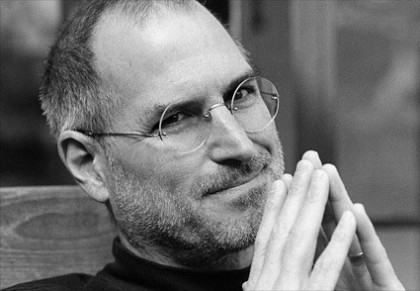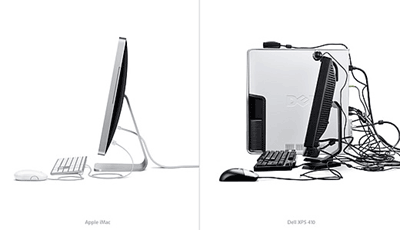True simplicity
Jules van Schaijik | Nov 12, 2011
Steve Jobs, whose genius I've long admired and whose biography I've been listening to lately, was well known for his desire to simplify products and make them more user friendly. (There is a friendly and funny spoof on this, by the Onion.) "Simplicity is the ultimate sophistication," Apple's first brochure proclaimed. But simple is not to be confused with simplistic. True simplicity, Jobs knew, comes "from conquering complexities, not ignoring them."
 This put me in mind of a chapter on "True Simplicity" in Dietrich von Hildebrand's classic work, Transformation in Christ—a context about as far removed from computers as can be imagined. Von Hildebrand makes a similar distinction within the spiritual life of the person. He distinguishes true simplicity from various kinds of illegitimate simplification. The outlook of a peasant, say, is sometimes simple in the sense of being "monopolized by elementary concerns, poor in meaning."
This put me in mind of a chapter on "True Simplicity" in Dietrich von Hildebrand's classic work, Transformation in Christ—a context about as far removed from computers as can be imagined. Von Hildebrand makes a similar distinction within the spiritual life of the person. He distinguishes true simplicity from various kinds of illegitimate simplification. The outlook of a peasant, say, is sometimes simple in the sense of being "monopolized by elementary concerns, poor in meaning."
Thus his world is a shrunken one, both in depth and width, and his conception of the world is "simple" in the sense of lacking content and differentiation. It is uncomplicated; but that freedom from complication is obtained at the cost of a renunciation of metaphysical depth and abundance.
Then there is a kind of simplicity that comes more from superficialty and laziness. "A great many popular 'philosophies'," Hildebrand writes, "are marked by this shallow simplicity." Peter Singer, it seems to me, is a prime example of this. His utilitarian philosophy consists of a few basic principles that he applies to any and all situations. Singer never seems to be troubled by thoughts like "Hmm. Perhaps Reality is a bit richer and deeper than I had assumed. Maybe I have to adjust my first principles." Whether the issue is euthanasia, infanticide, bestiality, Singer just barges on, apparently untroubled by second thoughts. As Hildebrand might say, he is "not awkward or clumsy but completely uninitiated." Outside of philosphy, we see an example of this superficiality in people who
in their candid complacency…will lavishly offer advice that is in no wise appropriate to the depth and intricacy of a given situation; they imagine themselves to be able to solve every problem and to arrange everything according to some simple prescription.
Yet another variety of illegitimate simplification consists in a "falsely childlike manner" or kind of "deliberate innocence."
Such a person fails to take account of the distance he must travel in order to rise from a lower mode of being to a higher one, he would skip the indispensable phases of maturing and growth; his life…is full of short circuits. He sets much store by his childlike innocence, an attitude in which he is fully at his ease, and mistakes it for true simplicity.
…Frequently, too, he escapes from the difficulties of life into that consciousness of being child-like… Whenever he should carry his cross he somehow evades it, mistaking Christ's transfiguration of all suffering for an elimination of all suffering, and equating his own natural, vitalistic optimism with a blissful consideration of all things in conspectu Dei.
Von Hildebrand concludes his list of "false simplicities" with the observation that the "basic error of all false simplicity lies in the assumption that it is a 'simple' thing to have true simplicity." In reality it is very hard. True simplicity is essentially deep. This is something Steve Jobs, and his main designer, Jony Ive, understood (at least when it came to designing products). Ive describes it like this:
Simplicity isn't just a visual style. It's not just minimalism or the absence of clutter. It involves digging through the depth of the complexity. To be truly simple, you have to go really deep. For example, to have no screws on something, you can end up having a product that is so convoluted and so complex. The better way is to go deeper with the simplicity, to understand everything about it and how it's manufactured. You have to deeply understand the essence of a product in order to be able to get rid of the parts that are not essential.
 Another passage from the biography, if you'll indulge me:
Another passage from the biography, if you'll indulge me:
That was the fundamental principle Jobs and Ive shared. Design was not just about what a product looked like on the surface. It had to reflect the product's essence. "In most people's vocabularies, design means veneer," Jobs told Fortune shortly after retaking the reins at Apple. "But to me, nothing could be further from the meaning of design. Design is the fundamental soul of a man-made creation that ends up expressing itself in successive outer layers."
I could go on much longer. Instead, let me end with another thought from von Hildebrand, namely that "full simplicity will be possible only in eternity," and by expressing my fervent hope that Steve Jobs has finally achieved it, and can now rest in peace.
